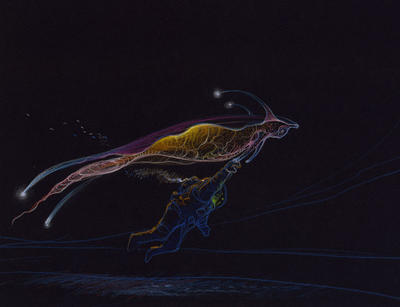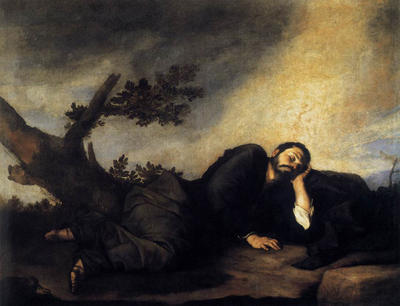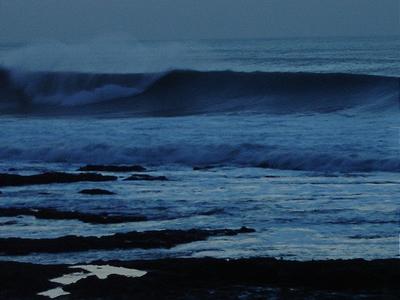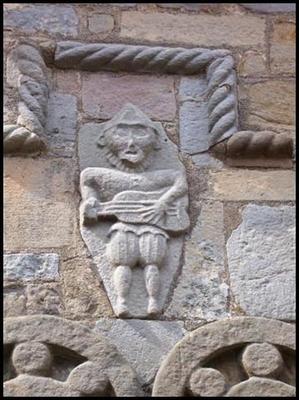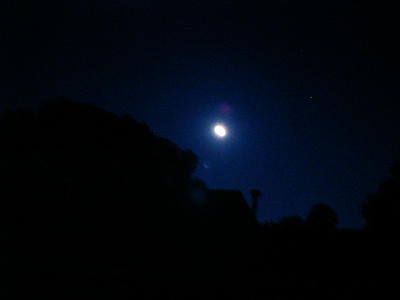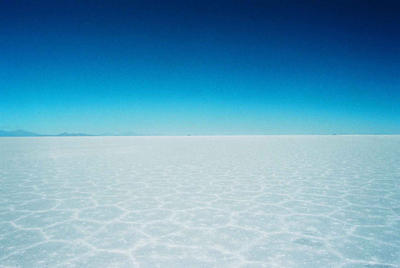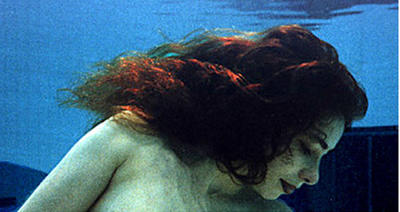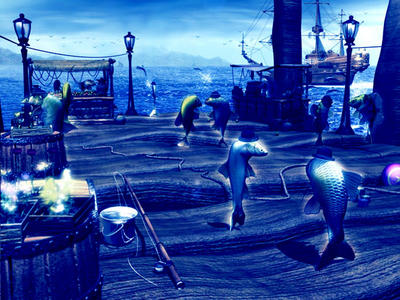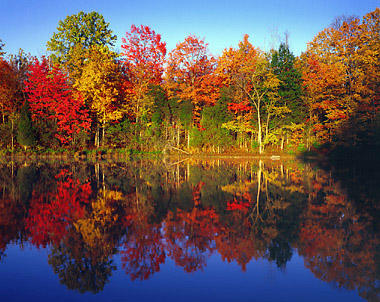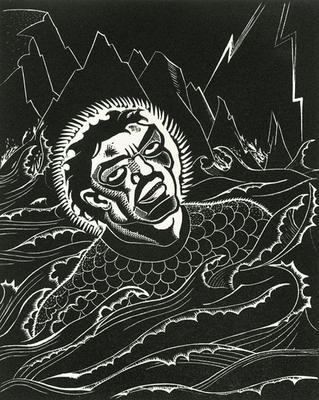The Upwelling Dream / Poem
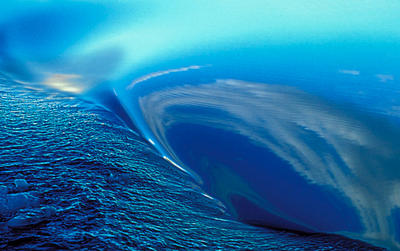
THE DREAM FORGE
If work is our yoga, our dreams dark
labors are its sutra, lessons of
unsheathable fire plunged deep
in awfulness. There is a furnace in the
basement of my heart, a hell
where imps grease old gears
and maul the presses where
my life is published, day after difficult
day, each a sum of hope and woe
balled tight and tossed into the
maelstrom, sustaining the engines
which roll me back here once again
for the next long daily fray.
Love’s torture is also racked there,
desire’s jezebells heaving their
cleavage in motions that cut me
raw and clean, their lips always just
beyond the ache of my kiss, their voices
taunting, swooning, accusing, their
sweet abysms always walking away,
finding me in my love faulty and
with means far short and droopy
of their own penetrate depths.
Each wave’s folds and crash booms
down those metal halls in full
augment of ebb, descending miles
and fathoms down. Endless are the toils
and smarts here in the forges of that smith,
maker and renewer of what is both art
and its heart, all my bright gleaming
shores fabricated here by a brute
ugly man who will never see the
hosannahs of day, much less the
beloved I dream. Each night my day’s
labors are sent down an oubliette
to plunge in the vat of acids
which tears me apart, limb from
bloody limb, to know the depths of
desire and God, where seven bright
swords steadily rise and fall,
gashing and dismembering and
setting me at last free. When I wake
there is no trace of blood on my lips,
only the faint salt staining the last
gossamer of fast-fading dream. -- What
wildness, what awfulness, what tender
perfection was there in that room?
I wonder, as I drag my ass out of bed
in the dark and stumble on down here
to stroke up the day fires and
do it all over again.
***
ORAN'S VOYAGE TO THE NORTH
It is commonly said that the People of the Sìdhe dwell within the hills, or in the underworld. In some of the isles their home, now, is spoken of as Tir-na-thonn, the Land of the Wave, or Tir-fo-Tuinn, the Land under the Sea.
But from a friend, an Islander of Iona, I have learned many things, and among them, that the Shee no longer dwell within the inland hills, and that though many of them inhabit the lonelier isles of the west, and in particular The Seven Hunters, their Kingdom is in the North.
Some say it is among the pathless mountains of Iceland. But my friend spoke to an Iceland man, and he said he had never seen them. There were Secret People there, but not the Gaelic Sìdhe.
Their Kingdom is in the North, under the Fir-Chlisneach, the Dancing Men, as the Hebrideans call the polar aurora. They are always young there. Their bodies are white as the wild swan, their hair yellow as honey, their eyes blue as ice. Their feet leave no mark on the snow. The women are white as milk, with eyes like sloes, and lips like red rowans. They fight with shadows, and are glad; but the shadows are not shadows to them. The Shee slay great numbers at the full moon, but never hunt on moonless nights, or at the rising of the moon, or when the dew is falling. Their lances are made of reeds that glitter like shafts of ice, and it is ill for a mortal to find one of these lances, for it is tipped with the salt of a wave that no living thing has touched, neither the wailing mew nor the finned sgAdan nor his tribe, nor the narwhal. There are no men of the human clans there, and no shores, and the tides are forbidden.
Long ago one of the monks of Columba sailed there. He sailed for thrice seven days till he lost the rocks of the north; and for thrice thirty days, till Iceland in the south was like a small bluebell in a great grey plain; and for thrice three years among bergs. For the first three years the finned things of the sea brought him food; for the second three years he knew the kindness of the creatures of the air; in the last three years angels fed him. He lived among the Sidhe for three hundred years. When he came back to Iona, he was asked where he had been all that long night since evensong to matins. The monks had sought him everywhere, and at dawn had found him lying in the hollow of the long wave that washes Iona on the north. He laughed at that, and said he had been on the tops of the billows for nine years and three months and twenty-one days, and for three hundred years had lived among a deathless people. He had drunk sweet ale every day, and every day had known love among flowers and green bushes, and at dusk had sung old beautiful forgotten songs, and with star-flame had lit strange fires, and at the full of the moon had gone forth laughing to slay. It was heaven, there, under the Lights of the North. When he was asked how that people might be known, he said that away from there they had a cold, cold hand, a cold, still voice, and cold ice-blue eyes. They had four cities at the four ends of the green diamond that is the world. That in the north was made of earth; that in the east, of air; that in the south, of fire; that in the west, of water. In the middle of the green diamond that is the world is the Glen of Precious Stones. It is in the shape of a heart, and glows like a ruby, though all stones and gems are there. It is there the Sìdhe go to refresh their deathless life.
The holy monks said that this kingdom was certainly Ifurin, the Gaelic Hell. So they put their comrade alive in a grave in the sand, and stamped the sand down upon his head, and sang hymns so that mayhap even yet his soul might be saved, or, at least, that when he went back to that place he might remember other songs than those sung by the milk-white women with eyes like sloes and lips red as rowans. "Tell that honey-mouthed cruel people they are in Hell," said the abbot, and give them my ban and my curse unless they will cease laughing and loving sinfully and slaying with bright lances, and will come out of their secret places and be baptized."
They have not yet come.
This adventurer of the dreaming mind is another Oran, that fabulous Oran of whom the later Columban legends tell. I think that other Orans go out, even yet, to the Country of the Sidhe. But few come again. It must be hard to find that glen at the heart of the green diamond that is the world; but, when found, harder to return by the way one came.
-- From Iona, Fiona McCleod (William Sharp), London: William Heinemann, 1912
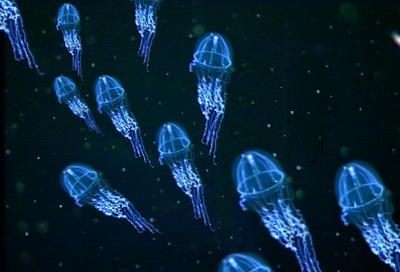
When Fiona McLeod (screen name of William Sharp) declares Oran "the adventure of the dreaming mind," he could as well be talking about poetry. (Remember, Columba was a poet, so his story -- the dayside version of history which remains -- had a dark vatic underside). Poetic craft is strange work in the dark, emulating Oran’s skull-boat peramble into the weird northern lights of the preter- sub- hypo- hypno-conscious: to sing of that dark light, fantastically nippled polymorphous perverse.
The post-Jungian analyst James Hillman in "Dream and Underworld" approaches the therapeutic task of dream work as beyond hermaneusis; that is, its work is a mimesis of depth-play. Anyway, psychoanalysis is in the well but it is not the task. Substitute "poetry" for "dream" in the following, and you have your hands on the rope which pulls up these daily buckets I call Wick-Lit:
"What we take out of dreams, what we get to use from dreams, what we bring up from dreams, is all to the surface. Depth is the invisible connection; and it is in working with our hands on the invisible connections where we cannot see, deep in the body of the night, penetrating, assembling and differentiating, debriding, stirring, churning, kneading -- this constitutes the work on dreams. Always we are doing precision work, but with invisibilities, with ambiguities, and with moving materials."
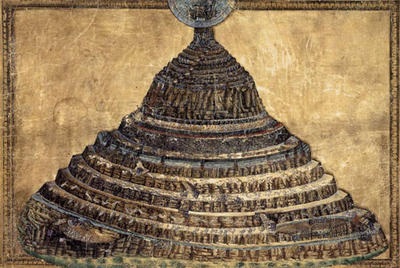
Oran's underworld, underwater travels and travails speak of a questing spirit transformed by its travels. Would you volunteer to descend through the footers of a cathedral, down to the bone loam of prehistory, down to the abyssal plains where all settles and is eventually lost?
And know that what falls there comes back in spades, richer and wilder and freer than a waking man could imagine. In her absolutely wet and magnificent The Sea Around Us,, Rachel Carson writes about the phenomenon of upwelling, when cold water surges to the surface:
“The conflict between opposing water masses may, in places, be one of the most dramatic of the ocean's phenomena. Superficial hissings and sighings, the striping of the surface waters with lines of froth, a confused turbulence and boiling, and even sounds like distant breakers accompany the displacement of the surface layers by deep water. As visible evidence of the upward movement of the water masses, some of the creatures that inhabit the deeper places of the sea may be carried up bodily into the surface, there to set off orgies of devouring and being devoured such as Robert Cushman Murphy witnessed one night off the coast of Colombia from the schooner Askoy.
“The night had been still and dark, but the behavior of the surface made it clear that deep water was rising and that some sort of conflict was in progress among opposing water masses far below the ship. All about the schooner small, steep waves leaped into being and dissolved in foaming whitecaps, pricked with the blue fire of luminescent organisms. Suddenly,
‘On either side, and at a bafflingly uncertain distance from the ship, a dark line, like a wall of advancing water, seemed to be closing in upon us ... We could hear the splash and murmur of a troubled surface close by ... Presently we could see a gleam of foam sprinkled with points of luminescence on the slowly approaching swell or head to the left. Vague and unfounded thoughts of marine earthquake bores occurred to Fallon and me together, and we felt peculiarly helpless with a dismantled engine and no breeze to make the craft answer her helm. The dreamlike slowness of all that was going on, moreover, gave me a feeling that I bad not yet fully shaken off the bonds of three hours' slumber.
“‘However, when the dark, white-outlined menace reached us, it proved to be nothing more than a field of the dancing water, tossing its little peaks a mere foot or so into the air and beating a tattoo on the steel flanks of ‘Askoy’ . . .
"’Presently a sharp hissing sound, different in character from the bursting of small waves, came out of the darkness to starboard, and this was followed by strange sighings and puffings ... The puffers were blackfish, many scores, or perhaps hundreds of them, rolling and lumbering along and diving to pass beneath ‘Askoy’ shortly before they reached her bilge . . . We could hear the bacchanalian clamor of their rumblings and belchings. In the long beam of the searchlight, the hissing proved to come from the jumping of small fishes. In all directions as far as the light carried, they were shooting into the air and pouring down like hail ...
“‘The surface was seething, boiling with life, much of which was de profundis. Larvae of clawless lobsters, tinted jellyfish, nurse chains of salps, small herringlike fishes, a silvery hatchetfish with its face bitten off, rudder fishes, hanging head downward, luminous lantern-fishes with shining light pores, red and purple swimming crabs, other creatures which we could not name at sight and much that was too small even to see distinctly . . .
“‘A general holocaust was in progress. The little fishes were eating invertebrates or straining out the plankton; the squids were pursuing and capturing fish of various sizes; and the blackfisb were no doubt enjoying the squids ...
“‘As the night wore on, the amazing manifestations of abundance and devouring gradually, almost imperceptibly, died away. Eventually, ‘Askoy’ lay once more in water that seemed as still and dead as oil, and the lap-lap of skipping waves drew off farther and farther into the distance until it was lost.'”
(Carson cites from "Natural History," VOI. Lin, no. 8, 1944, p. 356l; her pp. 145-6)
Ah dark and cold and abysmally wild, that region just offshore this day: here it is still and humid once again, witched by far Wilma who has yet to turn herself our way, battening now on the Yucatan Peninusla, her most distant tresses clouding overhead with that snakelike whirl and writhe. No one may fully look her in the face, so large that dark visage: instead we measure her affect in storm-surge, rainfall accumulation, insurance losses. The image of a soaked cat crying mournfully from a ravaged tree. Ah too deep and wild is nature’s black nurture for us to harbor in our hearts, these savageries of storm and tsunami and earthquake harrow thin the brain, make us needy and naughty, seeking paps of some avail.
No: the big stuff is not meant for us: the metaphor as yet ends there, before the cracks of doom: Such wildness snuffs the imagination, bewitches psyche, rendering us fools of old liturgy, proclaiming the End of Time, our eyes fast to television sets. The swastika of these events turns wide as continents from over and below, cyclonic and Scyllic, amping the pulse of compulsion, giving drunks their greedy throats. We thus turn to the wall and die.
No: my wild, my wave-wooly, my dark demesne sets herms along that borderline which outborders the wet work of psyche in soul, the task I now call Wick-Lit. These matin upwellings map a world for words, inking dragons beyond the depth and breadth of them, keeping these coracles within the marge and margins of the sayable unsaid, the knowable unknowns.
Oh and how much room there is to find there, here at 5 a.m., absolutely wearied from a hard week of work, my wife with hot flashes in her sleep of great worry, small flutings of breeze the most distant feathers of the black angel stirring up to the west ....Huge surgencies of the blackest phoshor, lamped with the world’s first fire, curved with bottomless desire, loud in all creation’s choir ...
“Man’s descent to the water is needed to evoke the miracle of its coming to life. But the breath of the spirit rushing over the dark water is uncanny, like everything whose cause we do not know -- since it is not ourselves. It hints at an unseen presence, a numen which neither human expectations nor the machinations of the will have given life. It lives of itself, and a shudder runs through the man who thought that "spirit" was merely what he believes, what he makes of himself, what is said in books, or what people talk about. But when it happens it is a spookish thing, and primitive fear seizes the naive mind ...
“.. We must surely go the way of the waters, which always trend downward, if we would raise up the treasure, the precious inheritance of the father. In the Gnostic hymn to the soul, the son is sent forth by his parents to seek the pearl that fell from the king’s crown. It lies at the bottom of a deep well, guarded by a dragon, in the land of the Egyptians -- that land of fleshpots and drunkenness with all its material and spiritual riches. The son sets out to fetch the jewel, but forgets himself and his task in the orgies of Egyptian worldliness, until a letter from his father reminds him of what his duty is. He then sets out for the water and plunges into the dark depths of the well, where he finds the pearl at the bottom, and in the end offers it to the highest divinity.”
-- Carl Jung, Archetypes of the Collective Unconscious, CW9, pars. 35, 37
___
Poem and dream, word for dark worlds: ferryman and that infernal freight, mutually tasked to sing what Oran found down there in the dream of St. Columba ...
THE DAZZLING DARK
2002
If it blazes, it has worth.
— Rilke
There is a God (some say),
A deep,but dazzling darkness.
— Henry Vaughan
The upwelling sea carries
in its cold hands a
rich mineral haul,
deep pearls and gems
beyond all price.
That gleaming wealth
was minted in darkness
and ice, from compressions
greater than the sky
over the sea, greater
than father on mother,
the weight of ages
and old certainties
which never die,
just descent to lower ones.
Down where we can’t
see we know things
which ghostlike glow
in a hell of near-forgotten
myths and deaths—ensoulings
which dart and linger
in the cracks of doom.
The sea lifts these in
its long currents,
carrying them up to shore—
an island close to the
equator, say—there
penguins sport near
palm trees and huge
seafowl batten on the
mineral-enriched flesh
of glowing fish. What
the birds deposit in
huge guano hills could
nourish a continent
of corn: such is what
ferries up from the
darkest places, the
most cold. I must trust
haulings such as this;
a bone poem hooked from
the abyssal heap has
its own fire, mineral
and glittery as Moby’s eye,
surely not ours to keep,
no family jewel, not
even a totem sire,
unfit for anthology:
rather this poem is
the wave which
carries a book
discarded long ago,
a seal-breviary
embedded with hoary
gems and inscribed
with squid inks
by hands long vanished.
"There’s a divinity
that shapes our ends,
hew them how we will,"*—
the wave is deeper than any
I tried to swive or swill,
richer than your heaven’s till.
* Hamlet vii 9-10
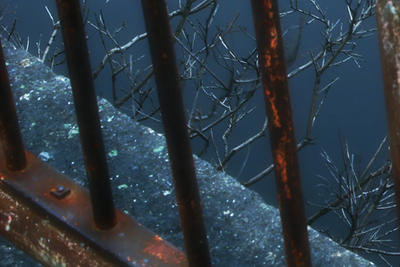
CAPE OF DEEPER DREAMS
2005
My dreams are more random
now, faded harps my angels
used to play for me in
brilliant strolling waves of blue
fret and ache and bluster.
Now I frequently dream in verse,
the angle of the descent and
discourse with shades pure
glossalalia, my inside tongue
all eyes and mouth. I know I’m
dreaming because I wake
ravished by a genius I can
only remember the sound of,
like a murmuring of a surf
beyond day-brightened dunes.
I wonder if I’ve voyaged
beyond one sort of dream
into its wilder terrain, a thrall
of sound whose sense is
aural, product perhaps of
all this listening and writing
each wave down. So when
I dream in the older way
I try to pay attention
in the old-school ways.
Last night I dreamed I was
sober no more, or was bent
on that ravishment, perambling
old bars of a lost great city,
each bar a tap assembled
from all the ones I drank
through for too many years.
Only I was walking bar to
bar in search not of booze or
even pussy, but rather
their salt integument,
trying to find a way to
enter and find a stool
that was right for the thirst
inside the old unslakable
greed; for James Bond-like
entries, all eyes on
me, violins sawing tense
and gorgeous lower
tones about my feet like
water, and ahead beneath
a single lamp the barstool
assigned to me by God
and a perfectly poured
martini on the bar,
gleaming a glacial, hard
blue undertow to all
I’ve since built over.
First it was a hotel
bar at 5 a.m., or several
of them in one swank
complex -- a convention
center perhaps -- the work
day’s furies still fresh
in me and the first drink
of happy hour after years
without fraught enough
to require the right bar,
stool, bartender, crowd,
first drink, I dunno, but
such angst wove me through
two or three without tasting
booze. None was quite right,
the sought for god missing
on his shore, the one-night
stand sleeping naked next
to me in the ghastly
hour of first light so wrong
I couldn’t wait to leave,
wrong for all the reasons
that sent me toward
the beacon of all wrongness
burning in the night.
And so I left that place
and ventured out into
a spring-seeming night
of city neon and hoary air
not winter any more
but far from summer,
a dewy fragrance hanging
in the eaves of stores
I walked under, like
some promised or
forever lost perfume,
as I made my ghost
peramble through all
the old, toothy bars.
I entered a dark
pool hall where I stood
next to the bar waiting
for a Budweiser and
wondering if I should
stay to romance
the barmaid, a conflicted
pretty-but-worn gal
in tight jeans and a
white t-shirt which
suggested weary, over-
weaning breasts which
were sore from nursing
too many men like me,
boys who’d gained
an appetite for their
long-lost mothers’
nipples. But in the
press of that hour
too many jerks were
jostling at the bar,
waving fivers like
fins of a school
of boy-men on a field
trip to salt’s breasty
planetarium where every
heavenly body is put
on view. -- So I got
outta there and walked
cooled midnight streets
wondering where next
to go to slake my riven
needs, scanning through
my faulty memory a
rolodex of eateries
and nightclubs, bars
of every stripe -- not
to rock at the Aquarius
Tavern in Spokane or CBGB
in New York City or Fern
Park Station in Orlando
where all the bands I
never got to play in rocked
the rafters and then died.
Not to dance at JJ Whispers
or Park Avenue amid
disco divas and New Wave
wastrels who danced
like Sufis of bad flame,
whirls I could not drink
to any sufficient depth.
Then I recalled some
restaurant bars of long
ago a few streets over
that had a certain,
Scotch-ambered glow,
a possibility of drinking
and receiving what
the pickled half of my
heart will always dream
of in its desire for
the perfect buzz, for
drink without the
drunkenness and love
in endless bloom: a
tipsy free-fall through downy
rooms where all the
women know my name
and trade it guilelessly
from night to bed to night
to bed, hosannah and amen.
And so I ventured out
toward streets I barely
recalled, stretching a long
night out still further to
its remotest periphery
close to dawn, that hazy
edge of blackout and
deep sleep inside the bottle
of a body I never quite
could find. I peeped an
eyelid open to find our
bedroom washed pale blue
by a hot moon hanging
in the western windows,
a migraine gonging in
my skull, our cat scrambling
around the room, trying
to rouse me downstairs
to feed her treats. Sometimes
a dream allows my Cape
blue folds, plashes of old
angst and vitreous desire
which no one may hold
as they boat through.
The sound of those
lost years is both revenant
and resonant, a vintage of
naked peramble for
which these words are
scat and scrabble.
Cape of my wrecked
hopes for perfect booze,
horned Cape of waters
deeper than old dreams:
Narrow down for me
what passed through with
me on those nights
of wild blue screams.
Name for me the totem
which redeems or
at least most loudly
scream that history.
